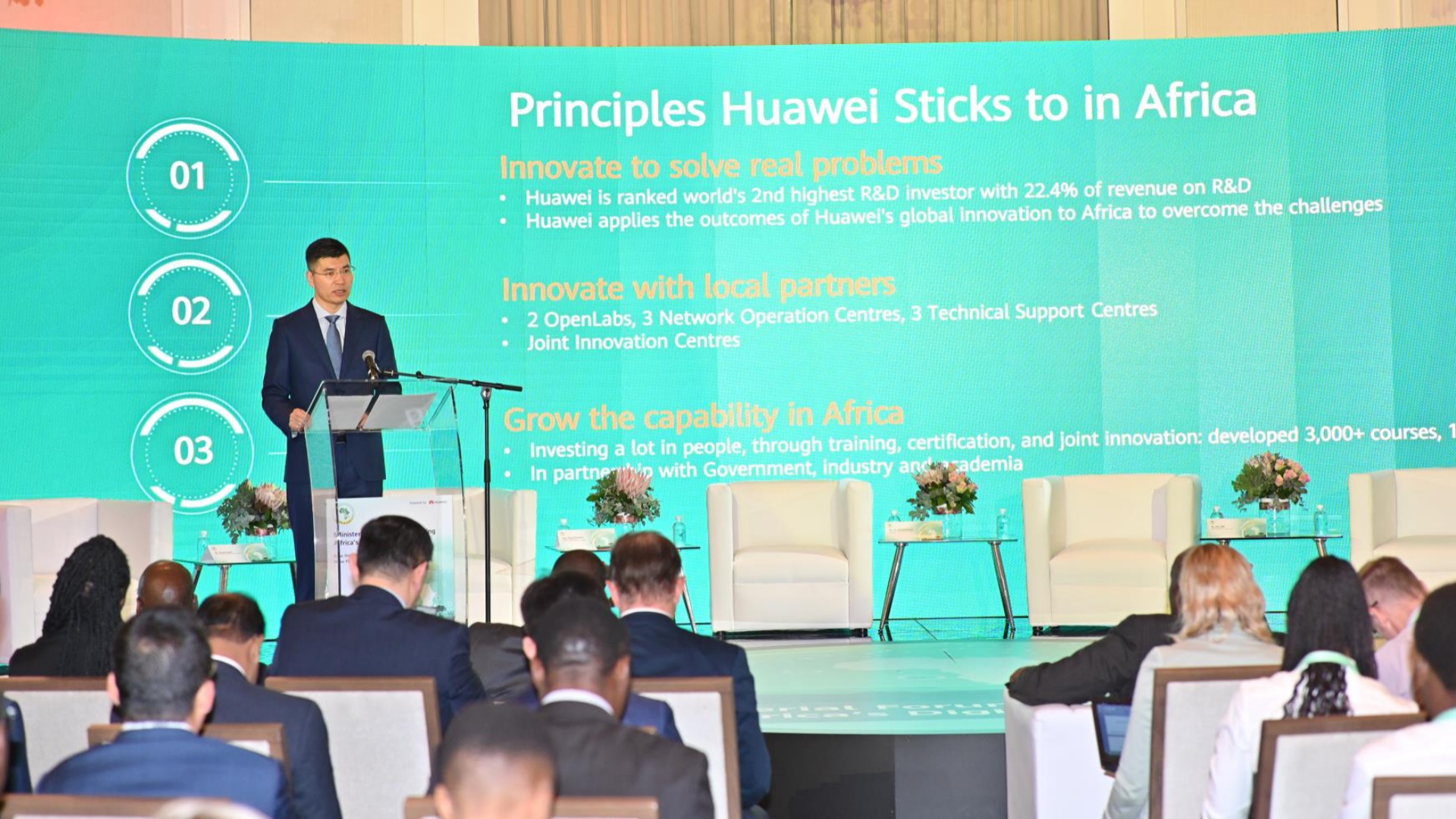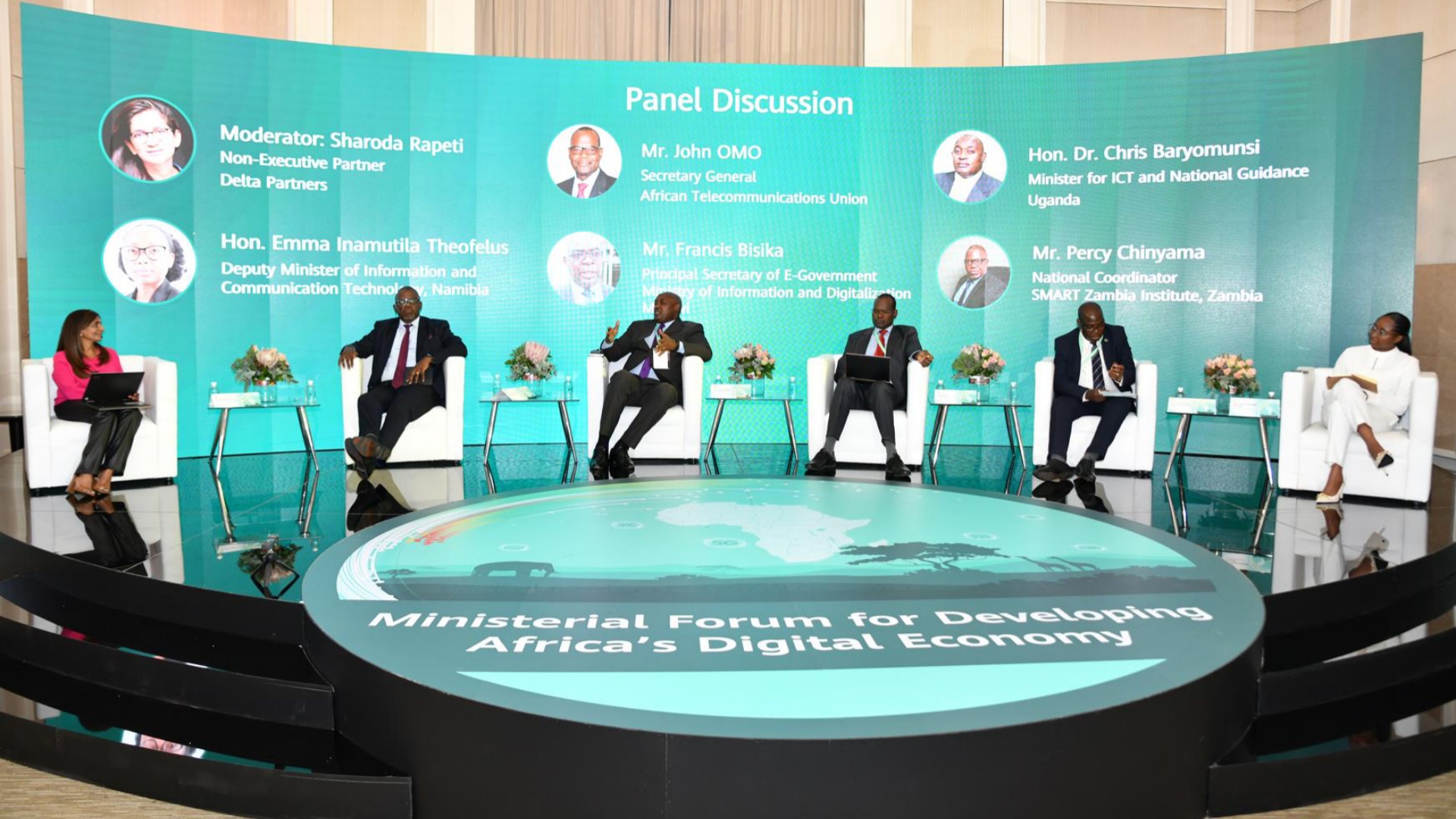- On day zero of AfricaCom 2022, the African Telecommunications Union (ATU) held a ministerial forum to unpack its thoughts on the digital economy on the continent.
- The ATU has signed collaborative agreements with four African countries this week, aiming to enable a unified vision of the digital economy.
- The hope is to get more African countries aligned in terms of pursuing digital initiatives and sharing knowledge.
This week members of the technology sector have descended upon Cape Town for the Africa Tech Festival. The week-long event includes AfricaCom too, and on day zero of the conference, the African Telecommunications Union (ATU) held a ministerial forum to discuss the wide-ranging topic of the digital economy.
To that end, the organisation invited delegates from Malawi, Namibia, Uganda and Zambia to unpack some of the strides that they have made in recent years in terms of bringing the digital economy to fruition, along with getting their signatures on a collaborative agreement aimed at unifying efforts as it relates to policy and infrastructure.
There is also the scope to set up standards for the African continent as it pertains to the digital economy, along with knowledge sharing between countries to help fast track some nations in areas where others are already well developed.
“Africa needs digital innovation to spill over into all segments of business and society if we are to strengthen our digital economy,” highlighted ATU secretary general John Omo.
“According to the World Bank, Africa requires $100 trillion to achieve full digital transformation, and no one, in the public or private sector, has the capacity to do this alone. Through the power of investment and of regulation, together we can craft a framework that will give effect to the growth and development we want to see,” he added.
As for Huawei and its role in terms of assisting with the digital economy, the company highlights three main areas it’s focusing on moving forward, having already helped in the four aforementioned countries – digital infrastructure, digital services and digital skills.

“If we do these three things well, we can connect the unconnected people and businesses, fully unleash digital productivity, and develop the digital economy, no matter what its definition is,” explained Leo Chen, president of Huawei Sub-Saharan Africa.
“To achieve this, Huawei innovates to impact with local partners, to find local solutions to local problems,” Chen said, “We are a leading global ICT company, and technology is our most important asset. We want to keep what matters the most in Africa. That is why we have made significant investments in people and skills transfer, through training, certification, and joint innovation.”
Speaking of some of the steps that have been taken in recent years, Malawi’s Francis Bisika, Principal Secretary of e-Government, noted that 2 300 km of fibre network has been installed across the country, with it landing in remote rural areas too.
“We are addressing the issue of connectivity, especially in rural areas, we are also bringing fiber to the home, as well as business. Once we have the connectivity, we can address the issue of digital literacy. We have also built a government data centre in which we are accommodating businesses and individual’s request for networking and storage, making ICT facilities available to as many Malawians as possible,” he added.
Another delegate making inroads is Zambia’s National Coordinator of SMART Zambia Institute, Percy Chinyama. “The digital sector has been given authority in Zambia. We are working to maximise the work of revenue generating departments and to reduce duplications of work and now have 240 government services online,” he enthused.
Also worth noting are the moves being made by one of SA’s nearest neighbours. Here Emma Theofelus, Deputy Minister of Information and Communication technology for Namibia, emphasised ICT and climate change as sharing equal importance in the country. “Digitisation and energy efficiency go hand in hand, and we are committed to working to increase levels of digitization and reducing our impact on climate change,” she shared.
As mentioned, the forum closed with the signature of a joint communique where all participants agreed that the development of the digital economy is measurable.
“In order to develop the digital economy, countries need to have in place a top-level strategy and an implementation roadmap, with clear objectives, indicators and milestones. They also need favourable policies to encourage investment, improve efficiency, and enable the infrastructure, skills, digital ecology, and innovation needed to grow the digital economy and create a fair business environment for all investors,” organisers concluded.
Hopefully at next year’s AfricaCom we will hear a favourable update as regards the ATU’s efforts, and more African countries signing on to align their digital economy objectives.

